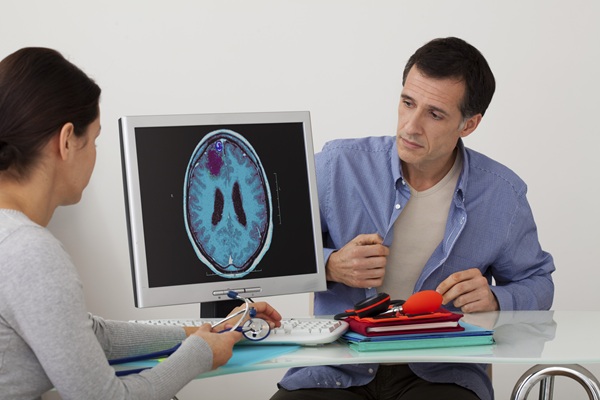When it may be Recommended to See a Neurosurgeon

Contrary to popular opinion, neurosurgeon diagnose and treat different conditions besides those affecting the brain. Their expertise extends to disorders and diseases affecting every part of the nervous system, from spinal disorders and head trauma to chronic pain, stroke, and nerve injuries. Although neurosurgeons perform extensive and complicated surgeries, they can also provide non-surgical options. Continue reading to learn when a visit to the neurosurgeon might be necessary.
When to see a neurosurgeon
A neurosurgeon generally dedicates their time to diagnosis and developing minimally invasive yet effective treatment plans. In most cases, they only perform surgery when no other viable treatment option is available. A conservative treatment approach is generally preferred when possible.
As weird as it may sound, neurosurgeons also treat regular conditions such as back pain, pinched nerves, and epilepsy. A condition does not need to be life-threatening to warrant an appointment with the neurosurgeon. Patients experiencing the following symptoms are advised to see a surgeon as soon as possible:
Neuropathic pain
Neuropathic pain occurs due to nerve damage from a disease or injury. Diabetes is one such condition. Patients may experience sharp, burning, or shooting pain. Neuropathic pain may also occur if there damage to the brain or spinal cord. This pain may start after experiencing a stroke. Neuropathic pain cannot be treated with regular pain meds. The neurologist can examine the patient’s condition and recommend the best treatment.
Recurrent migraines
Patients experiencing recurrent and severe headaches should see a neurosurgeon. Sometimes, it could be migraine headaches, which occur regularly and persist for several hours or days. Patients may suffer throbbing pain, nausea, and sensitivity to light, strong odors, or noise. Most people with migraines rarely get proper diagnosis and treatment. The neurosurgeon can determine the migraine causes and recommend ways to avoid them. Food and stress are common triggers. The doctor may prescribe medications to prevent or stop migraines.
Brain or spinal cord injury
Falls, auto crashes, and sports injuries can damage the brain or spinal cord. Patients may exhibit different symptoms, depending on the affected area and the extent of the damage. Brain injuries can result in seizures, dizziness, loss of consciousness, coma, and amnesia. It can alter someone’s thinking, memory, and behavior.
Spinal cord injuries can lead to numbness and weakness. Patients may lose mobility below the area affected by the damage. The neurosurgeon can develop a treatment plan depending on the patient’s condition and handle the intervention process. The treatment may include surgery, medications, physical therapy, and mental health therapy.
Book an appointment with the neurosurgeon
If you are experiencing recurrent symptoms, including strange sensations, uncontrolled movements, and memory issues, you need to visit the neurosurgeon to diagnose and treat the underlying cause of the discomfort. They may conduct brain tests and imaging if required. The surgeon will work with you to choose the most suitable and effective treatment that will achieve optimal results. The sooner you discover the problem, the earlier you can get the necessary solution.
Get more information here: https://arizonaneurosurgeon.com or call Randall Porter, M.D. at (602) 603-8951
Check out what others are saying about our services on Yelp: Neurosurgeon in Phoenix, AZ.
Recent Posts
Brain metastases are a serious medical condition where cancer cells spread from a primary tumor to the brain. They are more common than primary brain cancer tumors and can indicate an advanced stage of systemic cancer. This condition can significantly affect your quality of life and requires professional diagnosis and treatment.Brain metastases occur when cancer…
Facial reanimation is a specialized surgical approach designed to restore movement and expression in individuals affected by facial paralysis. This condition may result from trauma, nerve injury, tumor removal, or conditions such as Bell’s palsy. Facial reanimation combines microsurgical techniques, nerve grafting, and muscle transfers to improve function and appearance. When performed by a skilled…
Brain surgery is a complex and delicate procedure. It requires strict aftercare to ensure optimal recovery and few complications. Following the advice of your brain surgeon can help aid your healing process and make your long-term treatment a success. Here are some general tips from Randall Porter, M.D. team to help patients and their caregivers…
Considering undergoing back pain treatment from an experienced chiropractor? There are many different types of back pain one can experience. There are also many different types of back pain treatments available from a chiropractor. While back pain is more common as one gets older, anyone can experience back pain. The most common cause of back pain…


